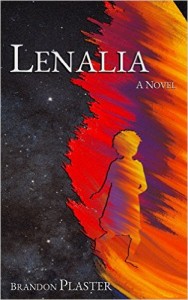Another month has come and gone, another month of varied posts from varied writers. I knew well in advance how this month’s theme would impact me—spoiler alert: it inspired me—which is a large part of why I proposed it in the first place. The simple truth is that when writers work alone, they usually fail. Or burn out. And when it looks like writers are going it alone, they probably aren’t.
As per usual when a month wraps up, I wanted to provide both a retrospective and quick index of our recent posts. I encourage you to take some time to dig through these. There are some real gems! Some highlights for me include Travis Heermann’s and Nathan Barra’s dueling examinations of critique groups and the benefits they offer (and how bad critique groups can be escaped/troubleshooted), and Kristin Luna’s post about reader reviews probably hit close to home for a lot of us.
Evan Braun—We All Live in Community
Guy Anthony de Marco—Collectives Collecting Collectible Creatives
Rachel Ann Nunes—Is Google Play Going Crazy or Is Fate Finally Smiling on Me?
Sherry Peters—My Peeps. My Tribe.
Kristin Luna—You Are Not Alone: One-Star Reviews for Everyone!
Evan Braun—Post 1000: How on Earth Did We Get Here?
Colette Black—Growing Community
Leigh Galbreath—This Ain’t No Fortress of Solitude
Frank Morin—What Goes Around
Kim May—Help! I’ve Written Myself into a Corner and I Can’t Get Out
Jace Killan—How to Tribe
Nathan Barra—Getting the Most Out of Group
Ace Jordyn—Turning Milestones into Stepping Stones: Why Accountability Groups Work
Scott Eder—Travelling in Packs: Partnering with Multiple Authors at Cons
Petra Klarbrunn—The Importance of Author Mentors
Mary Pletsch—Your Support Net(Work)
Travis Heermann—The Critique Group Waltz: Is Yours in Step?
Brandon Plaster—Community
Gregory D. Little—A Little Healthy Envy
Come back tomorrow for an extended look at our con experiences. Take it away, Scott Eder!
 Evan Braun is an author and editor who has been writing books for more than ten years. He is the author of The Watchers Chronicle, whose third volume, The Law of Radiance, has just been released. He specializes in both hard and soft science fiction and lives in the vicinity of Winnipeg, Manitoba.
Evan Braun is an author and editor who has been writing books for more than ten years. He is the author of The Watchers Chronicle, whose third volume, The Law of Radiance, has just been released. He specializes in both hard and soft science fiction and lives in the vicinity of Winnipeg, Manitoba.

 Like many writers, I was caffeinated in a not-so-counter-culture coffee shop the day that I became serious about writing. It’s not that I knew what I was writing at the time, or that there was anything special about the day, mayhaps a Saturday. It was just that I felt the threads of productivity resonating and for whatever reason my stream of conscious was somewhere completely dislocated from my body, having some sort of wild acid-free paper trip. That trip just happened to be perfectly timed.
Like many writers, I was caffeinated in a not-so-counter-culture coffee shop the day that I became serious about writing. It’s not that I knew what I was writing at the time, or that there was anything special about the day, mayhaps a Saturday. It was just that I felt the threads of productivity resonating and for whatever reason my stream of conscious was somewhere completely dislocated from my body, having some sort of wild acid-free paper trip. That trip just happened to be perfectly timed.